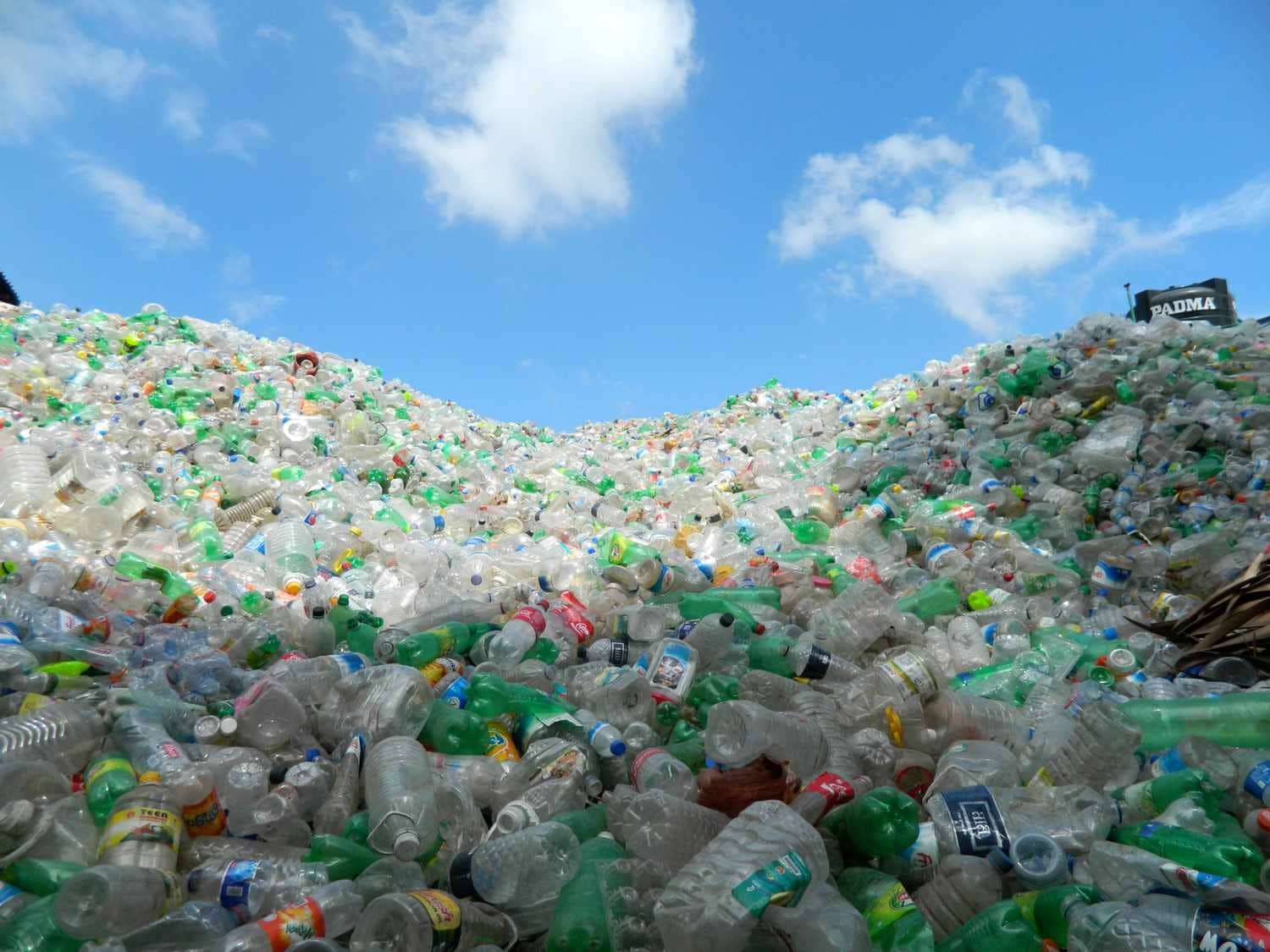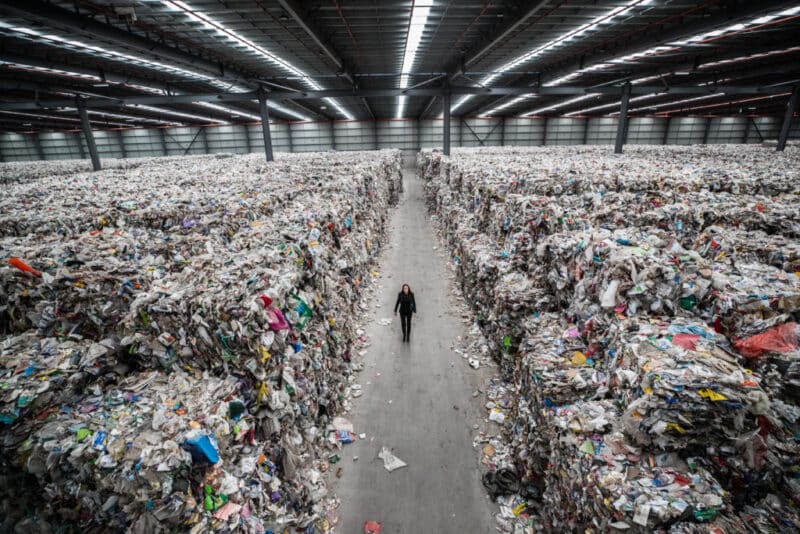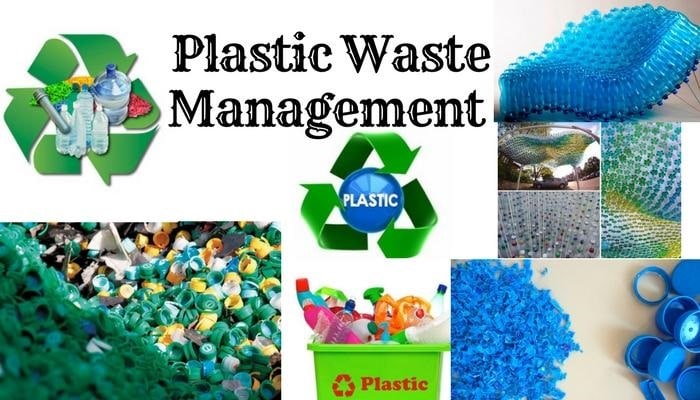If you’re looking for plastic recycling near you, there are a few options available. You can either bring the waste to a local recycler or look for a company that specializes in plastic recycling. Below I will discuss where to find plastic recycling near me, how it works, and other FAQs.
Map of Plastic Recycling Near Me
For “Plastic Recycling Near Me”, see the map below…
How to Recycle Plastic Near Me
If you take your plastic waste to a local recycling center, they will typically sort and clean it for you.
However, if you’re looking for a company that specializes in plastic recycling, you will need to sort and clean it yourself. Once you’ve sorted and cleaned it, you can then take it to a local recycler or sell it to a plastic recycling company.
Selling plastic to a recycling company is a great way to make some extra money, as they will typically pay you by the pound for your plastic waste.
The Crucial Importance of Plastic Recycling
Plastic recycling plays a crucial role in addressing the growing concern of plastic pollution in today’s world. With the proliferation of plastic bottles, plastic bags, plastic containers, and plastic packaging, our environment has been inundated with non-biodegradable waste. The importance of plastic recycling cannot be overstated, as it offers a sustainable solution to mitigate this crisis. Recycling programs and dedicated plastic recyclers are essential components of the effort to reduce the environmental impact of plastics.
Plastic recycling not only aids in waste reduction but also promotes a circular economy, where plastics can be transformed into new products, lessening the demand for virgin materials and minimizing the carbon footprint associated with plastic production. It is imperative that keep supporting and expanding plastics recycling initiatives to combat the pervasive issue of plastic pollution and promote a greener, more sustainable future.

The Process of Plastic Recycling
This is the process of taking plastic waste and turning it into new plastic products.
The first step in the process is to sort the plastic by type. This is typically done by hand, as different types of plastic have different melting points and need to be processed differently.
Here is an example of types of plastics:
- PET (Polyethylene terephthalate)
- HDPE (High-density polyethylene)
- PVC (Polyvinyl chloride)
- LDPE (Low-density polyethylene)
- PP (Polypropylene)
After the plastic has been sorted, it is then cleaned and shredded into small pieces.
The plastic is then melted and formed into pellets, which can be used to create new plastic products.
Do I Have to Separate My Plastics When I Recycle?
Most centers will take mixed plastics and then sort them. While you don’t necessarily need to separate your types of plastic, plastic, in general, should be separated from other materials like glass and cardboard. By doing this you help reduce the overall costs of the recycling process.
Are Any Types Non-Recyclable?
Most types of plastic can be recycled, however, some cannot.
The most common type of non-recyclable plastic is PVC (Polyvinyl chloride), as it contains harmful chemicals that make it difficult to recycle.
However, some centers accept all types. It’s best to reference the recycling centers’ websites to see what kind of restrictions they have around recycling plastic.
How Do You Dispose of Non-Recyclable Materials?
If you have plastic that is not recyclable, the best way to dispose of it is to consider a reuse option. For example, if you have children’s toys that are made of non-recyclable plastic you could sell, donate or give them away. The last option is to throw it in the trash.
Do not try to recycle non-recyclable plastic, as this can contaminate other materials that can be recycled.
What New Products Are Made From Recycling Plastic?
There are a variety of new products that can be made from recycled plastics, including:
- Plastic lumber
- Recycled plastic furniture
- Flower pots
- Park benches
- picnic tables

Benefits of Plastic Recycling
There are many benefits to recycling plastic. Not only does it help reduce landfill waste, but it also reduces the need for new plastic products.
In addition, it helps save energy and conserve resources. It takes less energy to recycle plastic than it does to create new plastic products from scratch.
Plus, it helps reduce pollution and greenhouse gas emissions. When plastic is recycled, it is melted down and formed into pellets. These pellets can be used to create new plastic products without the need for new plastic.
Here are some plastic recycling statistics to keep in mind:
In 2018, only 9.5% of plastic was recycled in the United States. It’s not improving very quickly either, in 2021 85% of it to landfills.
It is estimated that 100 million tons of plastic will end up in landfills by 2050. If we continue on our current path, it is estimated that there will be more plastic in the ocean than fish by 2050.
Reshaping the Future: The Surging Demand for Plastic Recycling in the US Market
The plastic recycling market in the United States has experienced a remarkable upswing in recent years, mirroring the growing societal concern over the environmental repercussions of plastic waste. This escalating demand can be attributed to several pivotal factors. Firstly, an increased awareness of the adverse effects of plastic pollution on both the environment and human well-being has spurred a decisive shift towards sustainable practices.
Secondly, government bodies and regulatory authorities have implemented stringent measures targeting single-use plastics, while concurrently promoting recycling initiatives, thus fostering an environment conducive to the expansion of the recycling industry.
Furthermore, the advent of cutting-edge technology and the refinement of advanced recycling processes have rendered plastic recycling economically more viable, resulting in heightened demand from manufacturers keen on integrating recycled materials into their products. Consequently, the plastic recycling market in the United States is unequivocally on an upward trajectory, emblematic of a positive and imperative stride toward a more sustainable and eco-friendly future.
Key Role of Recycling Facilities and Waste Management in Plastic Recycling
Recycling facilities and waste management facilities play a pivotal role in this process, as they are the key players in sorting, cleaning, and processing plastics for reuse. The Plastics Industry Association supports and promotes recycling plastics, recognizing the environmental benefits and the economic potential of a circular economy for plastics.

Through effective recycling programs, plastics can be transformed into new products, reducing the need for virgin plastic production and conserving valuable resources. Plastic recycling not only conserves energy but also helps reduce greenhouse gas emissions, making it a critical component in our efforts to combat climate change.
In sum, the importance of plastic recycling, including the use of the recycling bin, cannot be emphasized enough, as it plays a vital role in protecting our planet, conserving resources, and sustaining a healthier future for generations to come.
Plastic Recycling Near Me FAQs
What types of plastic can be recycled?
Most types of plastic can be recycled, including PET (Polyethylene terephthalate), HDPE (High-density polyethylene), PVC (Polyvinyl chloride), LDPE (Low-density polyethylene), and PP (Polypropylene).
How do I know if my plastic can be recycled?
Check the bottom of your plastic container for a recycling symbol. If you see a recycle symbol with the numbers 1-7 inside, this means that your plastic can be recycled.
Where can I recycle plastic near me?
You can recycle plastic at most local centers. You can also find companies that specialize in it specifically.
What are the benefits of recycling?
The process reduces landfill waste, saves energy, conserves resources, and reduces pollution and greenhouse gas emissions.
Can Plastic go in the trash?
No, plastic should not go in the trash. plastic should be recycled or reused whenever possible. While it may be tempting to throw plastic in the trash, this is not the best option for the environment. Plastic takes centuries to degrade, and when it does, it releases harmful toxins into the ground and air.
How Long Do Plastics Take to Biodegrade?
Plastic takes centuries to biodegrade. Once plastic is in the environment, it will remain there for generations to come.
Can I Sell Plastic?
Yes, plastic can be sold. Some companies specialize in buying and selling plastic. The amount you can get for recycled plastic depends on the type of plastic and the market conditions. Generally, buyer’s companies pay by the pound. So the more you have the more you can make.
Plastic Recycling Near Me – Conclusion
We hope this guide has helped answer some of your questions about plastic recycling near me. Remember, recycling plastic is a great way to reduce landfill waste, conserve resources, and save energy. If you have any additional questions, feel free to contact a local recycling center for more information. That’s what i have learned from the places that perform plastic recycling near me.
